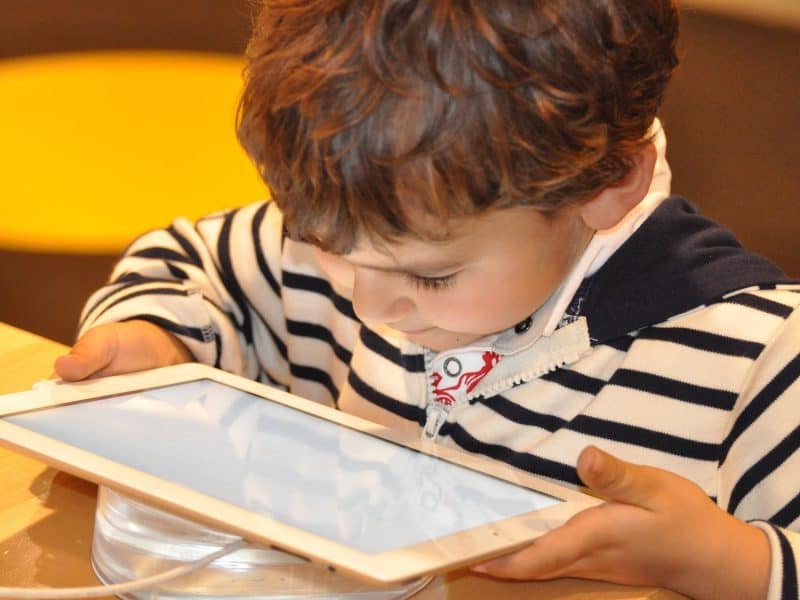In his book “Play – How it Shapes the Brain, Opens the Imagination and Invigorates the Soul” Stuart Brown MD and founder of the National Institute for Play has identified 8 play personalities that develop over time as we develop strong preferences for certain types of play. “Some things float your boat, others don’t”
In adult life the work that we find most fulfilling is almost always an extension of youthful play. For example children who played with their hands, taking things to bits and putting them together, often become engineers and enjoy their work. It is an extension of what they did for fun. They are still playing.
The 8 Play Personalities are as follows. You may recognise yourself and your children in some of them. Often a person may embrace two personalities or a mixture and it is interesting to watch as the child grows and develops

The Joker
This is the most basic form of play. We begin by making the baby laugh by making funny noises, blowing raspberries, pulling faces and tickling.
Child Jokers love playing jokes on others, collecting jokes and easily see the funny side of things. They often become the class clown and grow up to be people who love to play practical jokes on others. Entertainers and comedians are often continuing this play into their adult life, whether for a living or for fun.

The Explorer
Every child starts as an explorer, in fact their curiosity is one of their most endearing traits. In the adult the Explorer may continue actively to explore as a way of keeping active, creative and imaginative. Think of Sir Richard Branson here.
However the Explorer may explore new avenues to find deeper emotional feelings through writing and acting, through music and art or through mental development in research. The exploration does not have to be physical; it can be conducted from an armchair by watching programmes or reading.

The Kinesthete
These are people who like to be active or to move about. They seem to have a reserve of energy that they expend even when thinking. Often they continue in this play mode by practising yoga, swimming, playing team games or working out. If they do not make the activity their career they will make it their recreation.
Children are often observed with this play personality, see the review given by the father of a very active little boy “Does Our Dog Chair Have Something Special” Parents will find that The Kinesthete child will learn better if they can do so whilst moving, reading whilst rocking, reciting whilst skipping or just rolling around on the floor.
The Competitor
The Competitor enjoys playing games with rules where scores are kept and where they can be a winner. They always want to win, whether in sport, business or academia. They are constantly measuring themselves against others or against themselves with computer games.
In social groups the Competitor loves to be the top person in the group and in business the scores are bonuses and perks.
The Director
Directors enjoy organising, planning and executing events. As children they love to take charge and direct the game, the play or organise trips to the beach. They thrive on being the dynamic centre. Full of energy and ideas they find it difficult to remain passive.
The Collector
The thrill of play to the Collector is the excitement of owning and holding the best, the most interesting, the most complete collection of what ever takes their eye at the time.
Whether it is bottle caps, a series of toys, comics, wine labels, classic cars or storm chasing the Collector finds pleasure, excitement and recreation in his interests. The Collector may enjoy the collecting as a solitary occupation or a means of making social contact, as a profession or a hobby.
The Artist Creator
The Artist Creator is never happier than when they are making something, whether painting, modelling, crafting, or simply working with their hands fixing things.
They get enormous pleasure indulging their particular interest and may not grow up to be professional artists, potters or woodworkers or set designers. Instead they may pursue a creative hobby or, as Margaret Thatcher did, relax by hanging wall paper.
The Storyteller
The Storyteller is imbued with imagination; its thread runs through the very fabric of their lives and childhood play. Even when doing something quite mundane the Storyteller is acting out a fantasy in their head.
Adult Storytellers are performers, actors, playwrights, writers, musicians and dancers; they are all telling a story. Storytellers also enjoy listening to the music, to plays and reading books even if they as adults do not create them themselves. In business it is becoming more and more valuable to tell a story not only in marketing material and advertisements but to illustrate a function or business purpose.
The imaginative creative mind of the Storyteller adapts happily to business tasks and problem solving.
Play has been shown to develop the brain especially in childhood when the brain is developing at its fastest. But we are designed to be lifelong players and for as long as we continue to play we continue to develop. We are built to benefit from play at any age. Being given ample opportunity to play and a rich source of fertile ideas is priceless for the child – and the adult.

